 Petzlover
Petzlover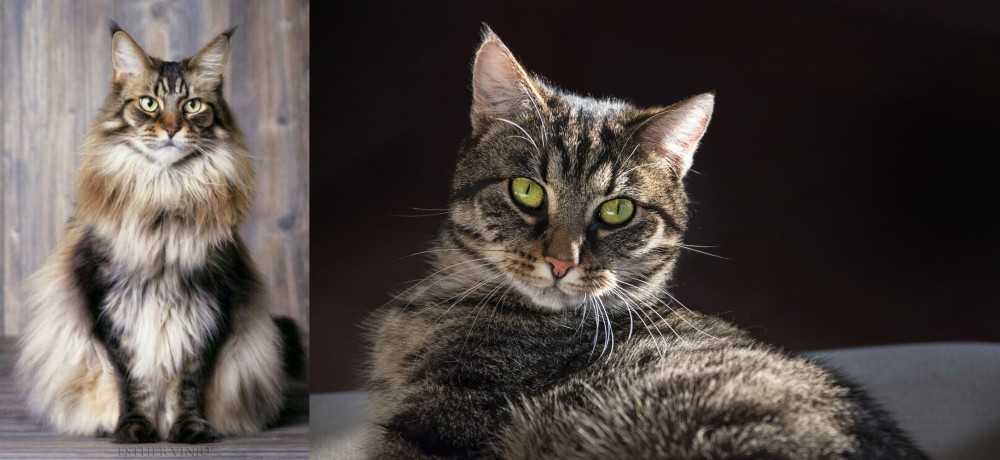 American Longhair is originated from United States but European Shorthair is originated from Sweden. Both American Longhair and European Shorthair are having almost same weight. Both American Longhair and European Shorthair has same life span. Both American Longhair and European Shorthair has same litter size. American Longhair requires Moderate Maintenance. But European Shorthair requires Low Maintenance
American Longhair is originated from United States but European Shorthair is originated from Sweden. Both American Longhair and European Shorthair are having almost same weight. Both American Longhair and European Shorthair has same life span. Both American Longhair and European Shorthair has same litter size. American Longhair requires Moderate Maintenance. But European Shorthair requires Low Maintenance
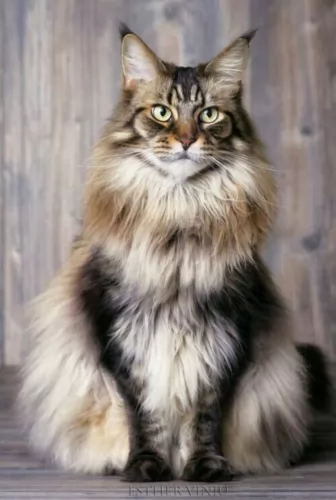 The handsome American Longhair cat is thought to be the result of attempts by breeders to have a cat that portrayed some Persian varieties.
The handsome American Longhair cat is thought to be the result of attempts by breeders to have a cat that portrayed some Persian varieties.
American shorthairs have characteristics and looks from both breeds. The American Longhair, although it comes from champion bloodlines, isn’t actually recognized by larger cat organizations.
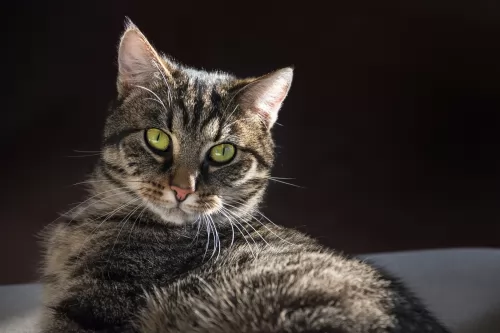 The European Shorthair is a cat breed that hails from Sweden but it also has roots that go back to the Roman Empire.
The European Shorthair is a cat breed that hails from Sweden but it also has roots that go back to the Roman Empire.
It is referred to as a natural cat breed, which means that the cat came about naturally without any human intervention.
The cat has had great hunting skills and this has what has made it sought after as a cat to keep rodents at bay. It became a famous housecat as well.
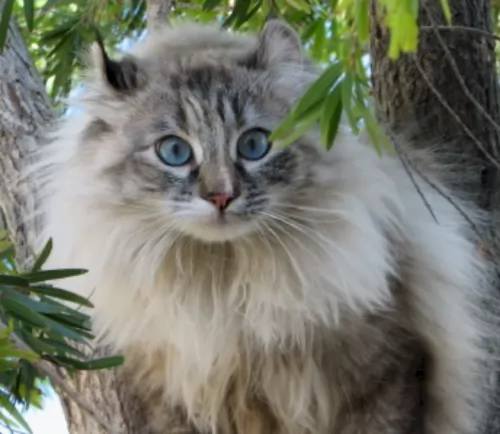 You’ll find that there are quite a few American Longhairs that have the snub nose of the Persian cat which is part of its ancestry.
You’ll find that there are quite a few American Longhairs that have the snub nose of the Persian cat which is part of its ancestry.
This is a well-muscled, medium to large sized athletic cat with a thick double coat of many colors and patterns that sheds fairly heavily.
This isn’t a particularly vocal cat, but in true cat-fashion, it is independent and doesn’t require a lot of attention.
This cat will make a nice companion for older people and it is calm enough to enjoy a leisurely stroll outdoors with a harness on. They’re adaptable to different situations, but the American Longhair isn’t the ideal choice for children as it isn’t your playful, lover of noise and games type of cat, preferring the attention of other animals.
They love going into barns and being buffeted and licked by the cows and other barnyard animals.
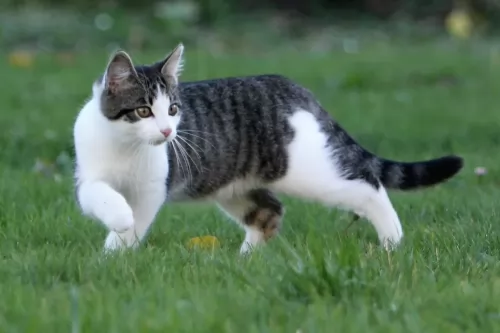 These domestic cats of Europe are a medium- to large-sized cat, weighing between 4 and 6kg, though some can be heavier.
These domestic cats of Europe are a medium- to large-sized cat, weighing between 4 and 6kg, though some can be heavier.
The European Shorthair has a fairly large head and medium-sized ears. The body is robust and round shaped. The cat’s short coat without an undercoat comes in a range of colors and patterns such as white, cream, red, black and blue with eyes that are green, yellow, brown or copper or blue.
The European Shorthair is known for its adaptable nature and the cat is able to fit into different lifestyles with ease. It's a cat that will live happily with children, pets, adults and seniors.
The cat loves his human family and loves becoming involved with fun games and activities. It's an intelligent cat too and cat food puzzles help him to think about how to get his food.
Even though your cat is social with his human family, it becomes fairly shy and nervous of strangers.
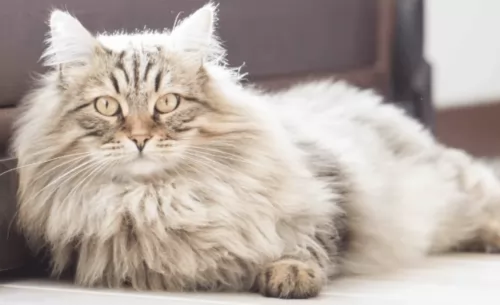 Your American Longhair is an easy-going, friendly social cat that doesn’t demand a lot from his human owners.
Your American Longhair is an easy-going, friendly social cat that doesn’t demand a lot from his human owners.
These cats are intelligent too and you can even teach them a trick or two. They enjoy the company of their humans and will even follow you around.
Bringing one into your home promises to be a rewarding pet-ownership experience.
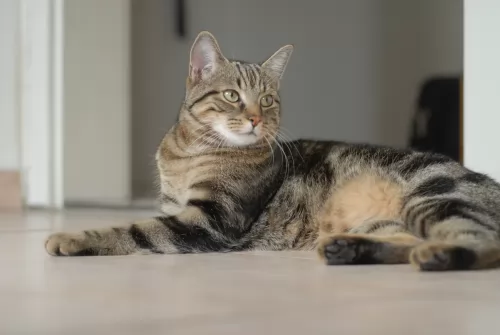 The European Shorthair is such a sweet cat and he is able to adapt fairly easily to new environments. It is such an ideal cat for households with singles, couples, families, and seniors as it adapts its personality to suit, getting on well with other pets as well.
The European Shorthair is such a sweet cat and he is able to adapt fairly easily to new environments. It is such an ideal cat for households with singles, couples, families, and seniors as it adapts its personality to suit, getting on well with other pets as well.
The cat loves his human family and wants to please, but loves to play too, being active and playful. Having one of these cats in your home is like bringing in a treasured gem.
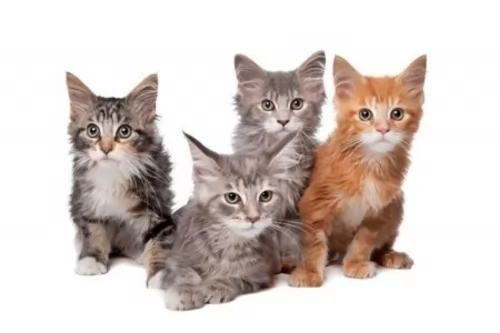 The American Longhair doesn’t have many health concerns and you can expect him to live up to 18, 19 or 20 years of age with good care.
The American Longhair doesn’t have many health concerns and you can expect him to live up to 18, 19 or 20 years of age with good care.
There are some American Longhairs that come with that shortened face of the Persian, and this may mean him battling with breathing problems.
Also, be aware of Polycystic kidney disease where you get cysts that form in the kidneys and which can become larger over time and eventually affect kidney function, leading to kidney failure.
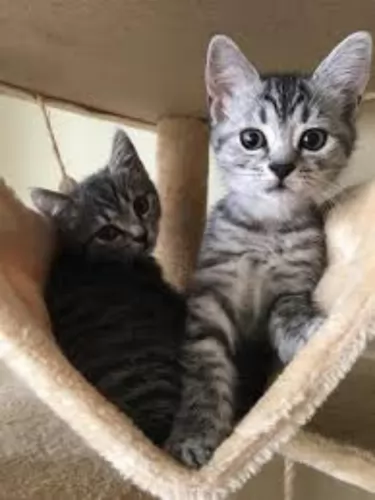 Even if your European Shorthair appears to be well, it is a good idea to get used to taking your cat to the vet for an annual check-up.
Even if your European Shorthair appears to be well, it is a good idea to get used to taking your cat to the vet for an annual check-up.
To provide your cat with the best chance to remain healthy, good diet and exercise is imperative. Look out for an itchy skin too as this could well be a sign that your cat is being plagued by parasites. Parasites can be a terrible problem and it will need to be attended to by your vet.
Parasites and an itchy skin can be a nightmare for your pet and make him most miserable with excessive scratching and licking as well as thinning of hair.
A new kitten will also require being vaccinated to ensure he remains healthy. These injections protect your cat from life-threatening diseases. Usually, vets start vaccines at between 8 – 12 weeks of age to protect your cat against the likes of Feline Leukaemia Virus, Feline Infectious Enteritis and Cat Flu.
There are also other vaccinations you might want to consider such as rabies and chlamydia.
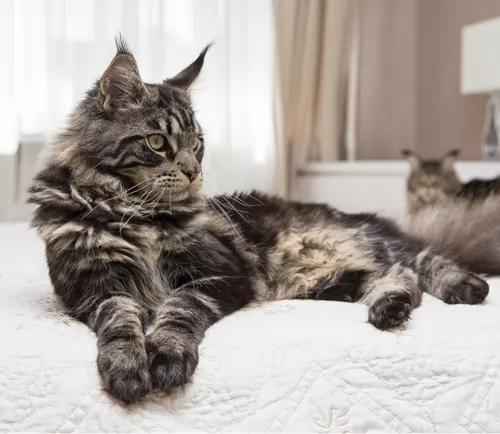 The long coat of the American Longhair will require some brushing to keep it shiny and smooth and free from dust but also to remove all those loose hairs.
The long coat of the American Longhair will require some brushing to keep it shiny and smooth and free from dust but also to remove all those loose hairs.
Make sure your cat’s food and water dishes are in an appropriate spot and keep them separate from your cat’s litter box. House train your cat immediately on how to use a litter box. Keep the litter box clean and rake up your cat's droppings regularly and dispose of them.
Before you get a cat, know that they scratch. It is normal for a cat. Provide your cat with a scratching post as well as climbing equipment such as a cat climbing tree.
Always feed your cat a meat-based diet, after all, cats in the wild are carnivores. There are some ingredients that a cat must have and they require certain amino acids found in meat-based proteins or else they could become ill.
The top quality cat foods provide cats with all the nutrients they need to keep them healthy. There are some cat owners who opt to feed their cats home-prepared meals because then they know exactly what’s going into their beloved pets food.
There are other cat owners who choose to provide their pet with a raw diet because they believe that this comes close to the cat's natural diet in the wild.
Always speak to your vet if you are in any way uncertain about the best foods for your cat. He should always have access to fresh cool water.
Check your cat for problems such as parasites such as ticks and fleas. You will also need to have your cat checked for worms. Your vet can diagnose worms with a physical exam. If it is discovered that your cat does have worms, the vet will recommend some safe, effective medications for your pet.
If you are able to, get your cat regular veterinary examinations to ensure he is always in tip-top condition.
Have your cat spayed or neutered to prevent unwelcome kittens in a world where there are just too many unwanted kittens. These procedures can have health benefits for your cat as well.
American Longhairs are lively playful cats so give your cat toys to play with to ensure mental stimulation.
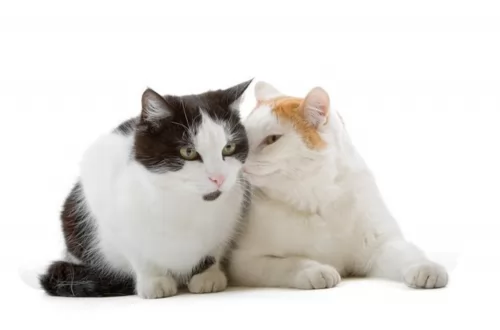 European Shorthairs like to groom themselves, but even so, you want to brush your cat once a week to keep the hair shiny and healthy. Make sure to trim your cat’s claws at the same time. It’s your time to feel for any unusual lumps or scratches on your feline friend’s skin. Check his eyes and make sure they are still bright and clear, look inside the ears to make sure they aren’t becoming clogged with dirt and wax and look inside the mouth to ensure no signs of gum- and tooth disease.
European Shorthairs like to groom themselves, but even so, you want to brush your cat once a week to keep the hair shiny and healthy. Make sure to trim your cat’s claws at the same time. It’s your time to feel for any unusual lumps or scratches on your feline friend’s skin. Check his eyes and make sure they are still bright and clear, look inside the ears to make sure they aren’t becoming clogged with dirt and wax and look inside the mouth to ensure no signs of gum- and tooth disease.
Your cat may well be outgoing with his human family, but his nervousness with strangers will require you providing him with a safe haven of his own. This might be his own bed which should be in a safe, dry, quiet area where he can retreat and feel more secure.
European Shorthairs love being outdoors and particularly if you have a female you’ll want her spayed to avoid her becoming pregnant. Cat shelters are already full of unwanted kittens and you don’t want to add to the burden. Also, have your male neutered too as he is ar less likely to want to roam. Spaying and neutering come with many health benefits too.
Be very careful of your cat’s diet. This is because the domestic cat is a carnivore and still essentially a predator, liking to hunt for their meat. They require a meat diet. However, cats have special dietary requirements and they require a balanced diet. All cats are individuals and they have different food likes and preferences, but they all need the best food there is to remain in peak condition. If you feed your cat commercially manufactured food, always follow the instructions on the label.
Provide your feline pet with cat accessories – food and water bowl, collar and tag, soft bedding, a climbing tree, scratching post, litter box, grooming accessories and toys.